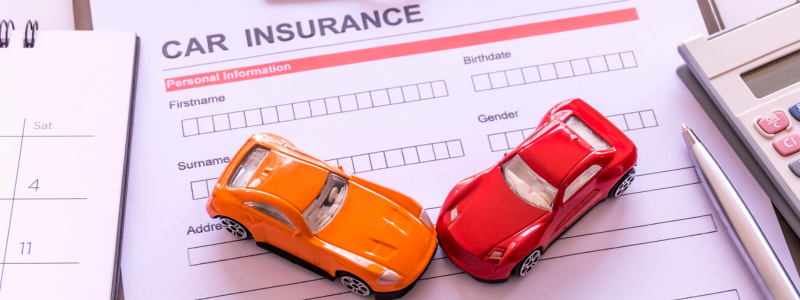Why Is Car Insurance So Expensive?
by Marsh Finance on Aug 28, 2024 10:42:26 AM
Key Summary
Car insurance premiums seem to always go up. Understanding car insurance costs is a tricky task. That's why we've broken down what goes into insurance premiums, as well as the factors that affect it.
You might not have heard of Insurance Premium Tax (IPT). This is a 12% government levy on your insurance, which is a big part of rising costs.
Personal Factors
Even the smallest accidents and bumps can increase your insurance. Points on your licence are another cause. If points stay on your licence for a while, they could hurt your chances of a cheaper deal. Also, if you make any changes to your car, this could impact your insurance premium.
The Age Factor
The longer you drive on the roads, the less you will pay for insurance. The average cost for a new driver is £1375. Three years in, you'll be paying just short of £1000.
Keep Your Costs As Low As Possible
- Compare different rates.
- Agree to pay more if you have an accident. This can reduce premiums.
- Pay by year, not month.
- Remove extras that you don't need.
- Make your car as secure as possible.
- Consider getting a black box.
Ever find yourself staring at your car insurance bill and thinking, “Why on earth is this so expensive?” You’re not alone. It seems like every time we turn around, those premiums are nibbling away at our wallets, leaving us thinking where we went wrong. But don’t worry! We’re here to break down the mystery of expensive car insurance costs and give you some tips to beat the system.
👉 Diving Into the Deep End: Why Car Insurance Costs an Arm (and Sometimes a Leg)
👉 Personal Risk Factors: The Spotlight on You
👉 The Age Factor and Its Impact on Your Wallet
👉 Tips to Keep Your Car Insurance from Breaking the Bank

Diving Into the Deep End: Why Car Insurance Costs An Arm (And Sometimes A Leg)
Let’s start with the truth: several things are constantly at play, nudging your car insurance price higher. Ever heard of Insurance Premium Tax (IPT)? Yep, that’s a 12% government levy on your insurance policy, acting as one of the invisible hands lifting your insurance cost. Then there’s the whole drama around serious injury compensation claims. Thanks to something called the Ogden rate, these payouts fluctuate, directly impacting your cover cost.
But wait, there’s more.
Uninsured drivers? They’re a part of this pricey puzzle, too. If an uninsured driver hits you, claiming through the Motor Insurance Bureau (MIB) means everyone’s premiums might see a bump as the MIB tries to balance the books.
Personal Risk Factors: The Spotlight On You
Insurers have a keen eye for risk. It’s like they have a risk radar, and if it beeps louder with your details, brace for a costlier premium. Accidents, even those tiny benders, can make your insurer jittery, potentially hiking up your rates, especially if the mishap was your fault.
Points on your licence are another red flag. Depending on the severity, they could linger on your record, reminding your insurer to charge you more for years. Then there’s the modification minefield – anything from fancy alloy wheels to a turbocharged exhaust can make your car more theft-worthy or riskier to insure.

The Age Factor And Its Impact On Your Wallet
Ever feel like your age is just a number… until it comes to car insurance? Turns out, the number of candles on your birthday cake (and the number of years you’ve held your licence) can significantly impact the price you pay for car insurance.
According to some eye-opening stats from Confused.com, your premiums could start sky-high and gradually taper off as you gain more experience behind the wheel.
For newbies with zero years on their licence, the median lowest annual premium can be a whopping £1,837.20. But, as you clock more years, the cost tends to take a friendlier dive.
Hit the one-year mark, and you’re looking at around £1,375.65.
Make it to three years, and it’s down to £998.75.
By the time you’re a seasoned driver with a decade of licence-holding under your belt, you could be seeing numbers like £691.00.
It’s a wild ride, but it shows light at the tunnel’s end.
Why So Pricey?
Besides age and experience, several other factors conspire to keep your car insurance premiums buoyant. Your car’s make, model, and age can influence costs – that sports car might look cool, but it’s likely to bump up your premium. Where you live plays a role, too, with city dwellers often facing higher rates due to the increased risk of theft and accidents. Even your job title can nudge the numbers up or down.

Tips To Keep Your Car Insurance From Breaking The Bank
- Comparison Shop: Loyalty doesn’t always pay. Shop around every year to make sure you’re getting the best deal.
- Increase Your Excess: Agree to pay more in the event of an accident, and your premiums will dip. Just make sure you can cover the cost if the time comes.
- Pay Annually, Not Monthly: It might hurt upfront, but paying your premium in one go is cheaper than monthly instalments.
- Cut Down on Extras: Do you really need courtesy car cover and legal expenses insurance? Trim the fat to save some cash.
- Boost Your Car’s Security: A car alarm or a parking space in a secured garage can lower your risk profile – and your premiums.
- Consider a Black Box: Letting your insurer track your driving habits can prove you’re a safe driver and lower your rates.
Believe it or not, there's even more you can do to trim your car insurance premiums. Visit our dedicated blog 'how to get cheap car insurance' and become a master on insurance saving.
Got Questions About Job Titles And Car Insurance?
Believe it or not, what you do for a living can influence your car insurance rates. Head over to our blog on the cheapest job titles for car insurance for the lowdown. Sometimes, a slight tweak (completely honest, of course) can save you a bundle.

Looking For Car Finance?
With Marsh Finance, applying for car finance is a breeze. Apply below in just 30 seconds, and find out if you’re pre-approved on the same day. No fuss, no muss.
There you have it. Car insurance doesn’t have to be the monster under the bed. With a bit of know-how and some savvy shopping, you can tame the beast and save yourself a packet. Remember, knowledge is power, especially when navigating the sometimes murky waters of car insurance.
Finance is subject to status
- June 2025 (16)
- May 2025 (10)
- April 2025 (5)
- March 2025 (6)
- February 2025 (4)
- January 2025 (4)
- December 2024 (10)
- November 2024 (14)
- October 2024 (12)
- September 2024 (25)
- August 2024 (77)
- February 2024 (1)
- May 2023 (2)
- March 2023 (1)
- February 2023 (1)
- December 2022 (1)
- October 2022 (2)
- August 2022 (1)